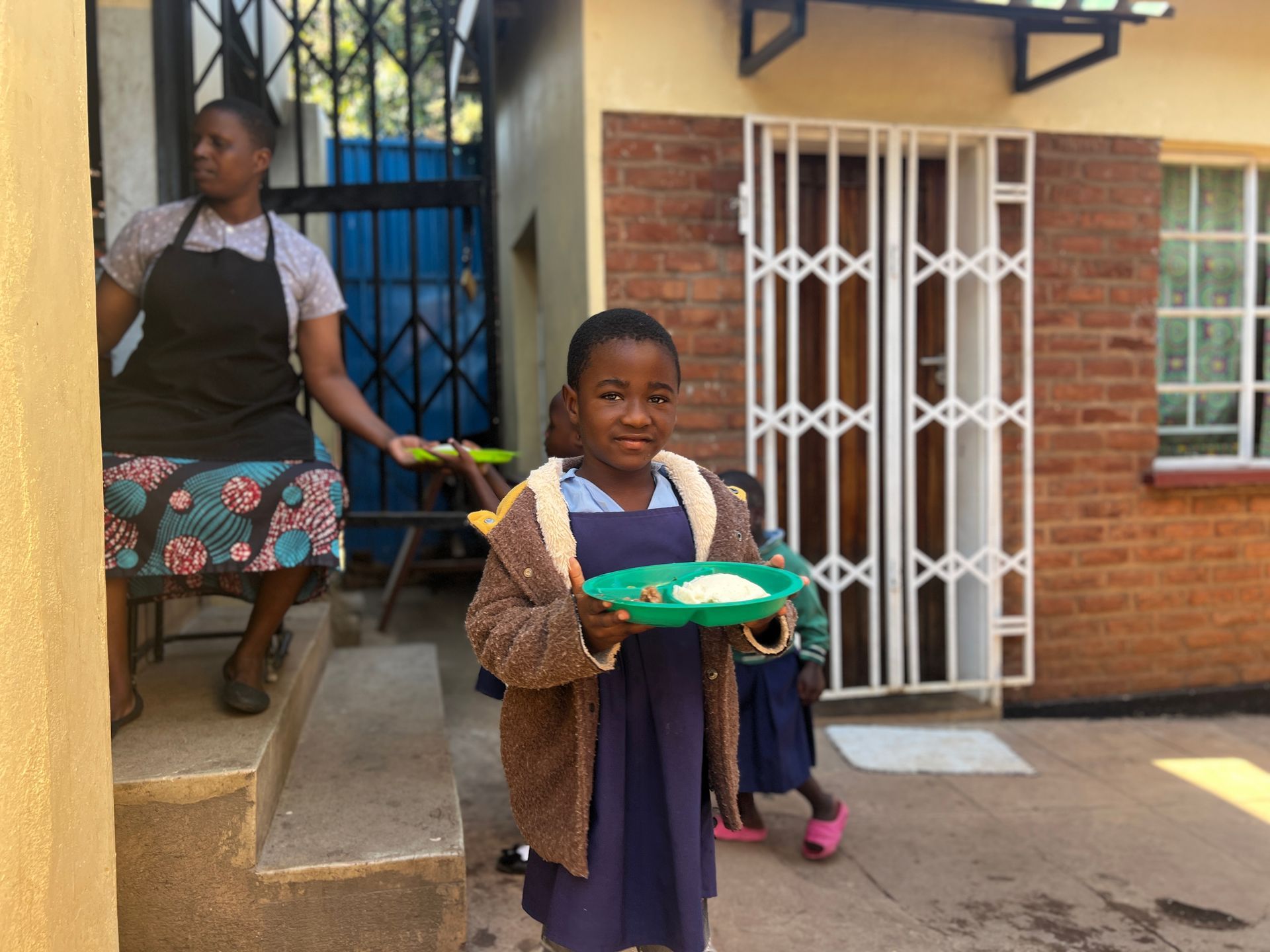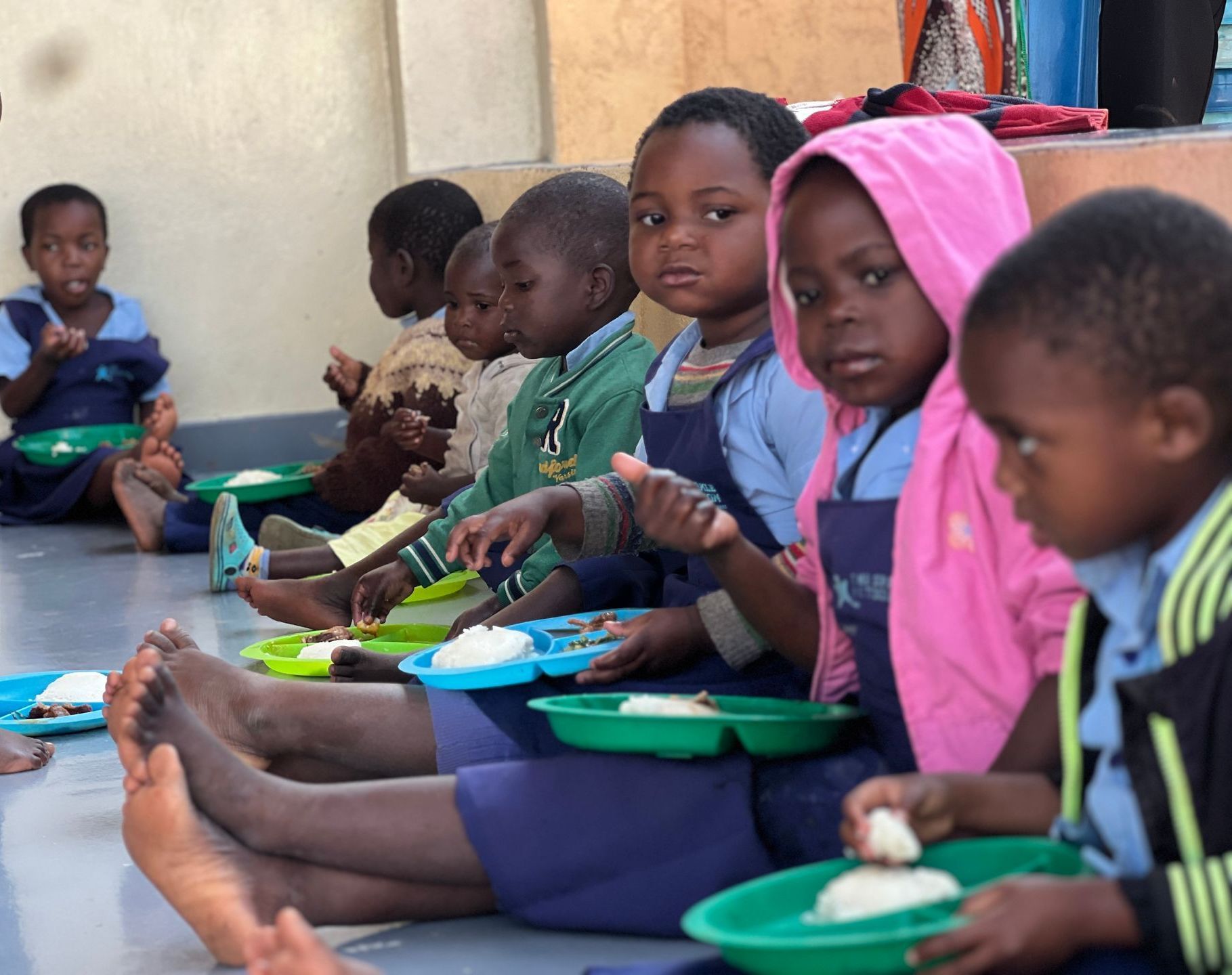The Heart of Sustainability: How Community Involvement Powers Our Nutrition Program
The lifespan of many charity organisations is often startlingly short—most fold within just a few years, unable to sustain their work without consistent support. At The Sparkle Foundation, we have learned an essential truth: sustainability is not only about funding or resources. It is about involving the community. When people take ownership of a program, they ensure its longevity, impact, and meaningfulness.
This principle guides our nutrition program, which provides breakfast and lunch to preschool and primary school children daily. But this program is not just about the meals—it is about the people who make them possible. Parents play an essential role, contributing firewood for cooking and dedicating their time and effort to preparing meals and cleaning dishes. Their involvement turns an ordinary program into a shared mission and a testament to the strength of collective action.
Shared Ownership for Shared Success
Every morning, guardians arrive at our three early childhood development centres, eager to help. With their assistance, we prepare breakfast and lunch, ensuring every child receives the nourishment needed to grow, learn, and thrive. Their involvement transforms meal preparation into a lively community activity, promoting a sense of shared purpose and pride.
This hands-on involvement is not only practical but also transformative. By actively engaging, guardians become partners in their children's well-being. They demonstrate to their children that education and nutrition are important priorities that require collective effort.
Why Community Involvement Matters
The guardians' contributions go far beyond maintaining the program; they are the lifeblood that fuels its success and impact. Their efforts create a ripple effect, strengthening the entire community.
Ownership and Empowerment
When guardians participate, they do more than offer help—they create something valuable. This sense of ownership empowers them, instilling pride in their contributions and reinforcing the importance of self-reliance.
Sustainability
Programs that rely solely on external funding are often vulnerable to setbacks. By involving the community, we reduce dependency on outside resources and ensure the program remains resilient, even during challenging times.
Skill Sharing and Collaboration
In the kitchen, guardians work together, sharing traditional cooking techniques and supporting one another. These interactions build social bonds and strengthen the network of support within the community.
Role Modeling for Children
When children see their guardians actively contributing to the program, they learn invaluable lessons about hard work, teamwork, and giving back. These lessons shape their values and prepare them to become active contributors to their communities in the future.
Building a Sustainable Legacy
The daily work of preparing meals at the Sparkle Centre showcases a community united by a shared purpose. As guardians chop vegetables, stir pots, and clean dishes, they forge connections, show commitment, and invest in their young ones' futures.
This unity is the cornerstone of sustainability. When a program belongs to the people it serves, it grows stronger, more impactful, and more enduring. The parent's involvement ensures the program does not just survive—it thrives, creating a legacy for future generations.
Looking Ahead
At The Sparkle Foundation, we remain dedicated to involving the community in every step of our journey. The wardens’ contributions of firewood, time, and care remind us daily of what true sustainability looks like. Together, we have built something extraordinary. And together, we will ensure it lasts.









